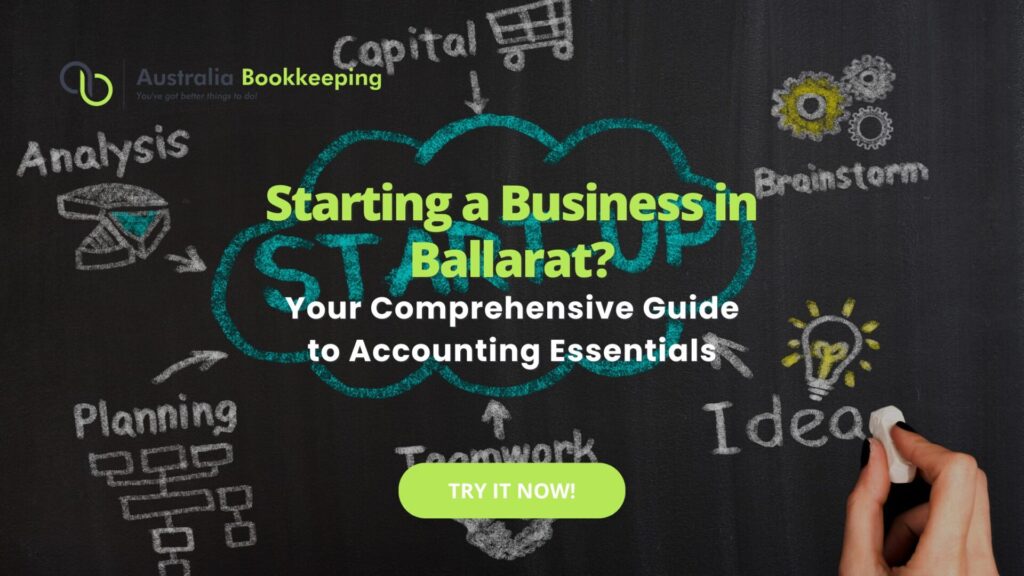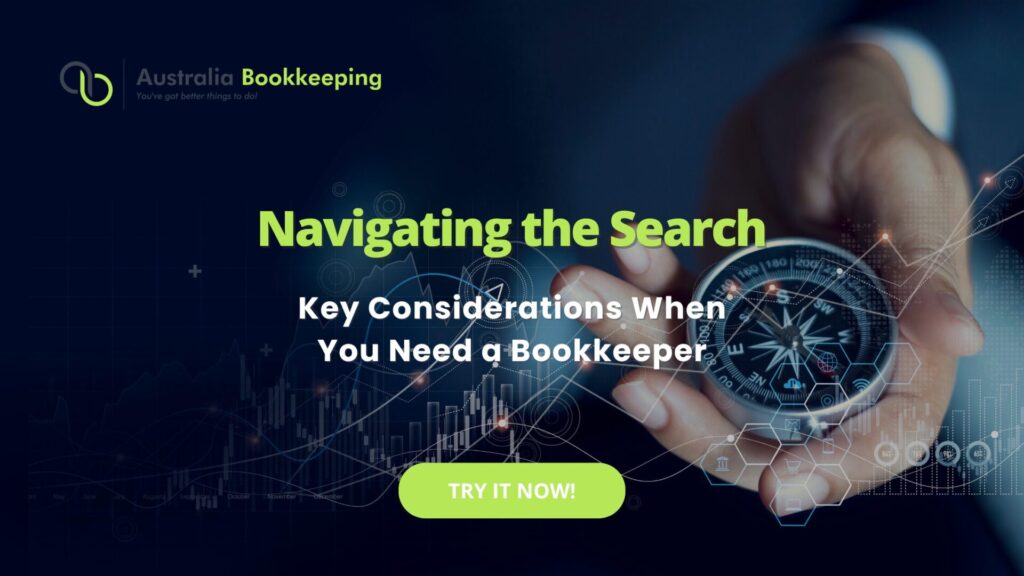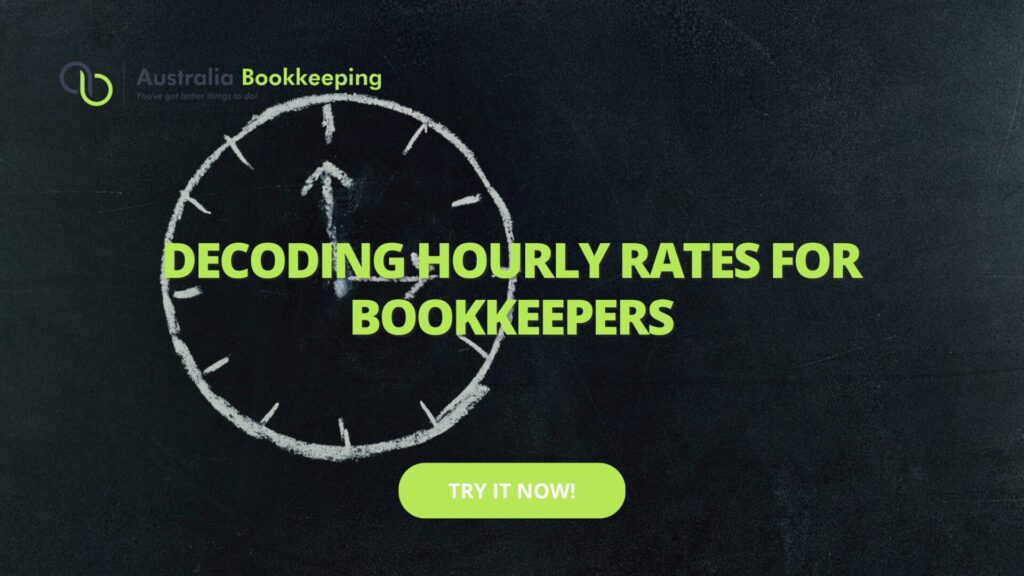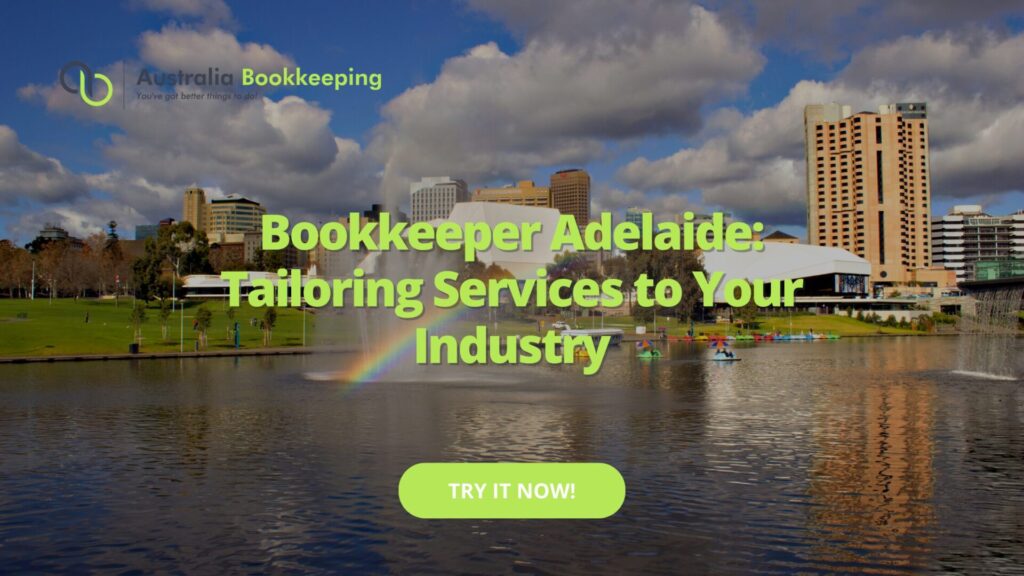Starting a Business in Ballarat? Your Comprehensive Guide to Accounting Essentials
Starting a Business in Ballarat? Your Comprehensive Guide to Accounting Essentials Congratulations on taking the exciting leap of starting a business in Ballarat! As you embark on this rewarding journey, establishing a solid foundation for your finances is crucial. Understanding accounting fundamentals will equip you with the knowledge and tools to navigate the initial setup stages and pave the way for long-term success. Schedule a free consultation with Australia Bookkeeping today! This comprehensive guide delves into the essential accounting aspects you need to grasp as a Ballarat business owner. Accounting Fundamentals: Building the Blocks of Your Financial Success Record-Keeping: The Bedrock of Financial Clarity From day one, prioritize meticulous record-keeping. Gather and categorize all business-related financial documents, including receipts, invoices, bank statements, and tax documents. Resist the urge to create a paper mountain! Cloud-based accounting software simplifies this process by offering categorized storage and easy access for you and your accountant. This not only saves you time and frustration during tax season but also ensures a clear and organized financial trail. Business Structure: Choosing the Right Framework Selecting the most suitable business structure is a crucial decision with legal and tax implications. Will you operate as a sole trader, a partnership, or a company? Each structure has its own advantages and drawbacks. Don’t hesitate to seek guidance from a business advisor or accountant in Ballarat. They can help you navigate the legalities and complexities associated with each structure, ensuring you choose the one that aligns perfectly with your business goals and growth aspirations. Tax Obligations: Understanding Your Responsibilities As a business owner in Australia, you’ll be subject to various taxes, including income tax, goods and services tax (GST), and potentially payroll tax. Familiarize yourself with these obligations and their deadlines to avoid penalties and ensure compliance. The Australian Taxation Office (ATO) website offers a wealth of resources to help you understand your tax responsibilities. Profit and Loss (P&L) Statements: Demystifying Your Financial Health P&L statements are like financial snapshots, providing a clear picture of your business’s financial performance over a specific period. They categorize your income, expenses, and net profit (or loss). Understanding how to interpret P&L statements empowers you to make informed financial decisions. Analyze your income streams, identify areas where you can optimize expenses, and track your progress towards profitability. The Power of Partnership: Why a Ballarat Accountant is Your Secret Weapon While you can manage basic bookkeeping tasks initially, partnering with a qualified accountant in Ballarat unlocks a treasure trove of benefits: Tax Minimization Strategies: Keeping More Money in Your Pocket An experienced accountant can identify relevant deductions and credits specific to your Ballarat industry. This expertise allows them to develop tax-minimization strategies that maximize your tax return and reduce your tax liability. By leveraging their knowledge of Australian tax laws, you can keep more of your hard-earned profits flowing back into your business. Compliance and Regulations: Navigating the Maze with Confidence Australian tax laws can be intricate and ever-changing. A qualified Ballarat accountant ensures you stay compliant with all relevant regulations, saving you the time, stress, and potential penalties associated with non-compliance. They act as your trusted advisor, guiding you through the complexities of tax filings and ensuring your business operates within the legal framework. Financial Planning and Budgeting: Charting Your Course to Growth Financial planning and budgeting are essential tools for any successful business. An accountant can help you develop a comprehensive financial plan and budget tailored to your Ballarat business. This plan will not only track your progress but also identify areas for improvement and provide valuable insights to support informed financial decisions that fuel your business growth. Business Advisory: A Sounding Board for Strategic Decisions Look beyond just number-crunching – a skilled Ballarat accountant can be your valuable sounding board. They offer financial insights and guidance tailored to the unique Ballarat business landscape. Seek their expertise for assistance with business registration, cash flow management, financial forecasting, and strategic planning. Their experience can be instrumental in helping you navigate challenges and make informed decisions that propel your business forward. Finding the Perfect Match: Selecting the Right Ballarat Accountant The ideal Ballarat accountant is more than just a service provider; they become a trusted partner in your entrepreneurial journey. Here are some key factors to consider when searching for the right fit: Industry Expertise: Look for an accounting firm in Ballarat with a proven track record of working with businesses in your sector. Their industry-specific knowledge ensures they understand the unique challenges and opportunities you face. Service Offerings: Evaluate the range of services offered by potential accounting firms. Do they align with your current and future needs? Look for firms that offer services such as bookkeeping, tax preparation, financial planning, and business advisory. Fees and Transparency: Be upfront about your budget and inquire about the fee structure of different accounting.
Starting a Business in Ballarat? Your Comprehensive Guide to Accounting Essentials Read More »











